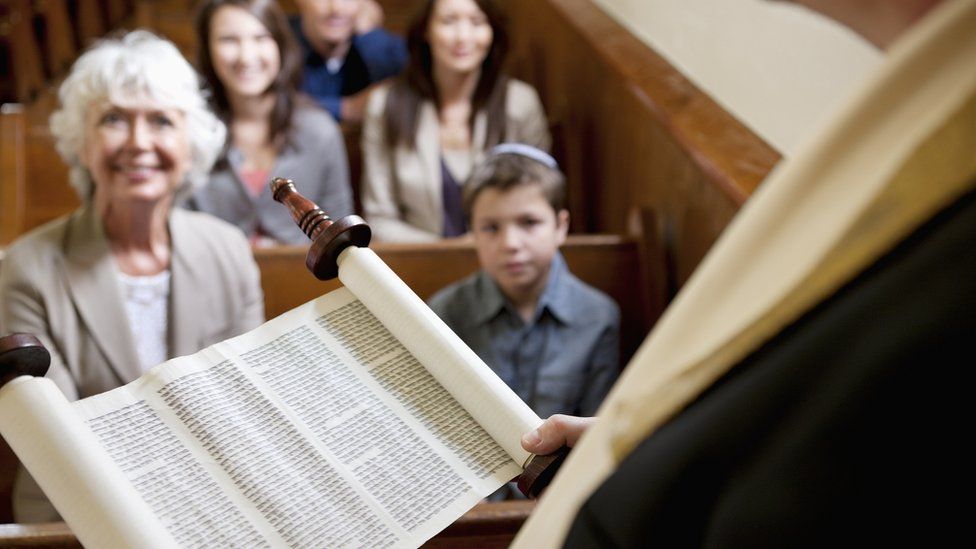Covid: Faith groups' singing studied for coronavirus risk
- Published

Faith communities are being invited to take part in a study of the role singing plays in spreading coronavirus.
Participants will be asked to sing at different volumes, and lasers will be used to detect and measure the droplets they produce.
Researchers will then look into how many droplets are blocked by different types of face covering.
The hope is this can inform guidance to allow worshippers to return to communal singing safely.
The team will also collect information about how Covid-19 has affected the experiences of prayer for different faith groups.
Measuring droplets
Prof Laurence Lovat, professor of gastroenterology and biophotonics at University College London (UCL), is asking participants to complete a questionnaire on how their practice of worship has changed during the pandemic.
They will be asked about their usual involvement in communal prayer and their experiences of worship since March, when restrictions on meeting and travel were introduced.
From the respondents, a group of people will be selected to "sing, chant or hum" in front of a bright laser light and a high-speed camera, which will detect tiny droplets of moisture - aerosol - hanging in the air.
There is evidence that coronavirus can be spread through these particles.
The light will enable the droplets to be seen, and a camera that flashes 7,000 times a second will record them.
Singing was suggested as a high-risk activity for spreading coronavirus after outbreaks were linked to choir groups.
Current guidance states singing should be "limited to the performers, and worship should not include congregational singing".
It continues: "People should avoid singing, shouting and raising voices. This is because of the potential for increased risk of transmission from aerosol and droplets."
But more recent research has suggested it might be the volume, rather than the activity of singing itself, that determines the risk level.
Prof Lovat plans to test this by asking participants to sing at different volumes and measuring the differences in the aerosols they produce.
He plans to recruit people of different sizes, heights, sexes, ages and ethnicities - as well as those with and without facial hair.
"Unfortunately, the Covid-19 pandemic has significantly changed many people's daily or weekly worshipping routines, affecting their ability to pray, enjoy group discussion or take part in singing or chanting," he said.
"Our study aims to establish how the practice of worship has changed and find out what the risk of Covid-19 transmission is when singing, chanting or humming with or without a face mask.
"We'll have a better understanding of what's acceptable and what isn't," he said.
Michelle Sint, who is Jewish and has already enrolled in the study, said she wanted to take part to find out whether it was possible to "sing without putting people at risk".
"There's something very uplifting about singing as a community in one voice," she said, adding that it was "an integral part of the atmosphere and the worship".
For Junaid Shah, singing and communal prayer does not play such a large role in his Muslim faith, but he wanted to contribute in order to aid other communities.
And he said it was important to him to "highlight the importance of communal worship, even in these times".
"More than anything it's a support network. It's about not feeling isolated."